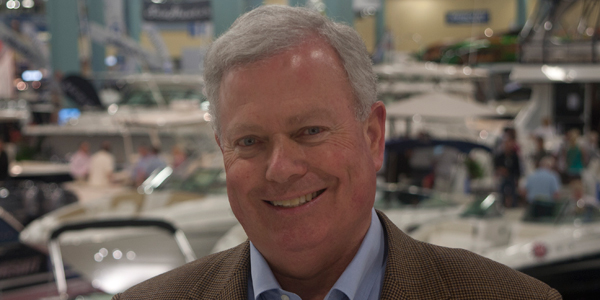Three CEOs share recession experience
Three CEOs share recession experience
- January 18, 2019 |
-
 CEO Update
CEO Update


Thom Dammrich, CEO, National Marine Manufacturers Association
The Great Recession was a major blow for the National Marine Manufacturers Association. The group's staff shrank from 149 to 81 employees while its annual revenues dwindled to $32 million, or half what they had been before the recession. As a result, NMMA changed its budgeting process, according to Dammrich.
"Every year, when we present our budget, we also present a contingency plan in the event our revenues are down 5 to 10 percent," he said. "And we've changed our fiscal year so our revenues are front-end loaded in the year, so if we are not achieving at the levels of revenue budgeted, we've got the last six months of the year to make adjustments on the expense side."
NMMA also is careful to avoid bloat when it comes to staffing.
"We keep our staff fairly lean and have moved toward outsourcing things we feel we can," Dammrich said. "So we've outsourced a lot of our IT. We've outsourced some of our web. We've outsourced some of our public relations and lobbying efforts. And we use independent contractors where we can."
His advice for other association CEOs? "I think having a contingency plan and knowing where you're going to cut if you have to cut is extremely helpful."

Steve Anderson, CEO, National Association of Chain Drug Stores
The National Association of Chain Drug Stores was already in the process of slimming down its operations when Anderson joined in 2007. "We had made recommendations to the board and it had coincided with the recession," he said.
NACDS reduced its staff by 25 percent and began a series of "smart sizing" initiatives designed to make the association leaner and more efficient.
"We totally reprioritized what we did as an organization, particularly on the policy side," Anderson said. "We were doing too much and had a rather diffuse beam of light in terms of our effectiveness. We got it down to a laser aspect in how we do public policy and communications."
NACDS consolidated its three trade shows into a single event, which Anderson said has been a big success and helped drive up revenues. The group also phased out its defined benefits program for employees, switching over to an enhanced 401(k) program.
His advice for CEOs seeing potential storm clouds on the economic horizon? "Always be paranoid. You want to put money into innovation—which we have been able to do—and new programs that reflect where your industry is right now, but at the same time you should be running your association as lean as you can and pretend another recession is right around the corner."

Jerry Howard, CEO, National Association of Home Builders
The housing sector was hit hard during the Great Recession, and that pounding was reflected in its trade group.
The National Association of Home Builders lost 40 percent of its staff, saw a huge reduction in revenues and the loss of net assets.
"Frankly we were not as observant of the warning signs that were out there," Howard said. "We were kind of unprepared to be honest with you."
Not that NAHB hadn't taken precautions. The group had previously put a significant amount of money into its reserves, which kept it afloat.
"So the No. 1 thing we learned is the sound economic principles of governing an association should be adhered to in the good times so you are prepared for the bad times," Howard said.
NAHB is now a leaner and more focused organization. "We got back to sticking to our knitting—our basic relevance to our members is based on advocacy, it's based on networking and it's based on education, which I think is true for many associations."
Howard's advice for other CEOs? "Most importantly, plan to demonstrate to members that you are good stewards of their money and that your value proposition remains extremely crucial to their business success. In terms of a depressionary or recessionary environment, the value proposition of membership is crucial to business recovery."
